QE Fellows 2025 Cohort

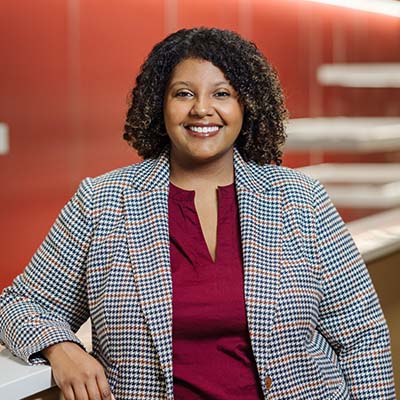
Andrea Pena Vasquez
Dr. Andrea Peña-Vasquez is an Assistant Professor of International Affairs at the University of Pittsburgh Graduate School of Public and International Affairs (GSPIA) with a focus on Migration Policy. Her research focuses on issues of legal status and identity documentation, race and ethnicity, and migration governance in multi-level states. Dr. Peña-Vasquez received her Ph.D. in political science from the University of Notre Dame and prior to joining GSPIA, she was a postdoctoral fellow at Hamilton College and a Fulbright visiting researcher at the Carlos III- Juan March Institute of Social Sciences and the Autonomous University of Barcelona. Her current book project analyzes the design and implementation of Spain’s regularization programs for irregular immigrants.
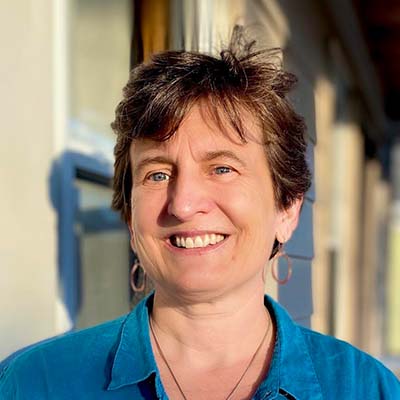
Carrie Parker
Caroline (Carrie) E. Parker, Ed.D.,leads research and technical assistance to improve learning for culturally and linguistically diverse students, with a particular interest in how language learning intersects with disabilities. She co-designs her research and technical assistance through an equity lens, recognizing the important opportunity for research to both reveal or hide inequities and opportunities for change.
Carrie’s work in educational research has spanned more than 20 years. In addition to working directly with district and state educators to better understand learning and outcomes for multilingual learners and students with disabilities, Carrie has worked with both the Regional Educational Laboratories and the Regional Comprehensive Centers programs, designing research and technical assistance to meet the needs of students and educators. This has included working with state leaders to re-envision their statewide English learner programs and looking at district practices to improve learning experiences for multilingual learners who may have learning disabilities. Parker’s work with students with disabilities includes multiple district reviews of special education programs as well as federally funded studies of programs for students with disabilities across K-12. She has led research studies funded by the Institute of Education Sciences and the National Science Foundation (NSF), examining the impact of a literacy intervention on reading levels of students with significant cognitive disabilities and the role of an innovative program providing students with intellectual disabilities access to college courses, among others. She has also received funding from the Hewlett and Schusterman Foundations to better understand culturally sustaining teaching practices.
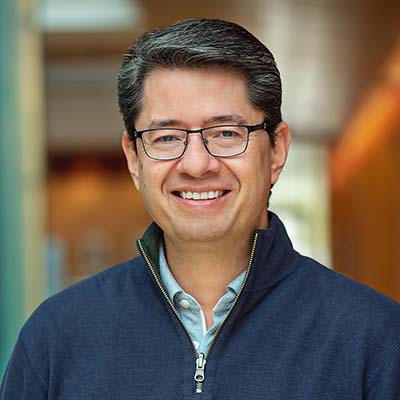
Chris Quintana
Chris Quintana is an Associate Professor in the Marsal Family School of Education, University of Michigan, where he integrates work from education and learning sciences, human-computer interaction, and computer science. His work has involved articulating learner-centered design processes and approaches that guide the development of learning tools and technologies. This informs his current work supporting “learning experience design (LXD),” which includes co-developing online and in-person LXD educational programs. He has also worked heavily on developing scaffolded software tools and a “scaffolding design framework” describing how software features can scaffold learners as they learn to engage in complex practices. This work continues in his current explorations on how large language models might scaffold students as they learn about the different cognitive and metacognitive aspects of learning experience design.

Dan Tetrick
Dan Tetrick is a Data Science Manager at Microsoft, leading efforts within the Azure Edge & Platform division to enhance developer productivity, security, and code reliability. With over a decade of experience in data science and a strong foundation in statistics and computational modeling, Dan specializes in analyzing engineering systems data to drive measurable impact. He guides projects focused on build and test reliability, ownership prediction, and the effectiveness of tools like GitHub Copilot in large-scale repositories. Dan also manages quality dashboards and strategic reporting to inform senior leadership and support initiatives like SFI. Prior to his current role, Dan served in the U.S. Navy as a Nuclear Missile Technician and later developed virtual engineering curricula as a Learning Scientist at UW-Madison. His leadership blends technical depth with a focus on inclusive team culture, helping shape the future of secure, efficient software engineering at Microsoft.
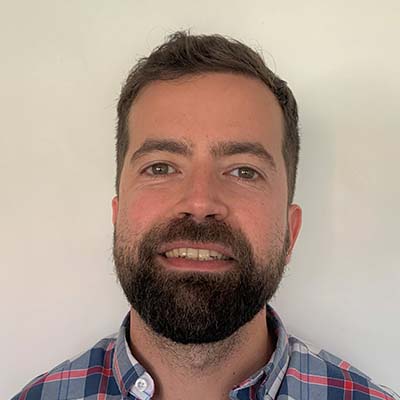
Dario Fuletti
Darío Fuletti is the Monitoring and Evaluation Officer at UNICEF in Uruguay. His work centers on the design and supervision of research initiatives aimed at closing data gaps related to the situation of children and the realization of their rights. He collaborates with governmental institutions and civil society organizations to strengthen the evidence base for public policy in social protection, education and violence towards children. His responsibilities include coordinating studies and supporting the research development ensuring that findings are relevant for policy dialogue. Prior to joining UNICEF, he held evaluation roles at the Ministry of Social Development and the Ministry of Livestock, Agriculture and Fisheries, contributing to impact evaluations using experimental and quasi-experimental methods. He also worked in economic advisory at Deloitte Consulting. Darío holds a Master’s in Demography and Population Studies, a Postgraduate Certificate in Econometrics, and a degree in Economics.
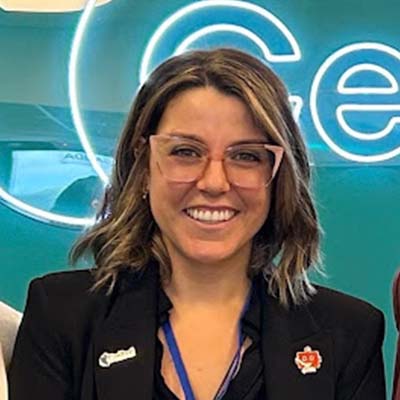
Denise Camou
Denise Camou is a sociologist specialized in user experience and social impact. She holds a degree in Sociology from the Universidad de la República (Uruguay), a master’s in CSR from the Universidad Politécnica de Valencia (Spain), and a postgraduate degree in Innovation and Design Thinking from the Centro Universitario de Diseño de Barcelona (Spain). She has broad experience in user research, both nationally and internationally. Denise co-founded Personas Research, the first studio in Uruguay dedicated exclusively to user experience research. In 2021, she led the research component of UNESCO’s Innovation in Digital Anthropology project, contributing to global insights at the intersection of culture and digital transformation. Since May 2023, she has led the User Experience team at Ceibal, Uruguay’s digital technology center for education innovation at the service of public education policies. There, she leads diverse research initiatives and project development efforts, applying innovative methodologies to improve the user experience of students and teachers. Her focus is on generating actionable insights and new perspectives to inform strategic decision-making and product development within the national education ecosystem.
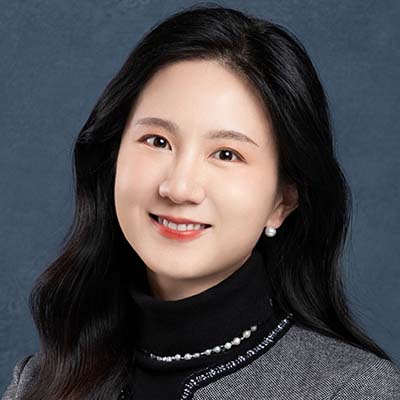
Enyu Zhou
Enyu Zhou is a Senior Research Analyst at the Council of Graduate Schools (CGS). Her experiences as a first-generation student navigating the U.S. higher education contribute to her lines of inquiry. Her work focuses on higher education, with particular emphasis on graduate enrollment, student success, and career development. She served as a Co-PI on two NSF funded studies, one focusing on broadening participation in STEM education, exploring application and matriculation in STEM graduate education; and one focusing on understanding PhD career pathways and the transitions and persistence in the STEM workforce. She earned a Ph.D. in Educational Leadership and Policy Analysis and a master’s degree in public affairs from the University of Missouri-Columbia.
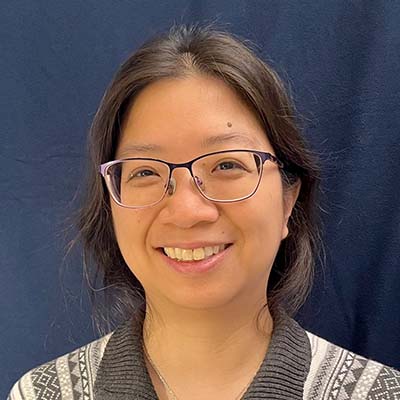
Evangeline Su
Dr. Evangeline Su studies the impact of relationships and reflective practices, such as metacognition, on knowledge transfer and learning in a variety of learning environments (classroom, mentoring, colleagueship in teams, leadership, etc.) as well as human-centric organizational change with particular attention to the retention of researchers and educators in STEMM. Her work pays particular attention to the impact of trauma, shame, apologies/forgiveness, and neurodivergence in these spheres. She holds degrees in Chemistry (physical and inorganic) from Northwestern University and Cultural Anthropology from Princeton University. She has worked in the chemical and materials science industry as well as in higher education academic and student support staff roles supporting undergraduate research, teaching and learning professional development for faculty and staff, and teaching graduate students about mentorship, mentoring up, and navigating their career decisions.

Geoff Holtzman
Geoff Holtzman completed a PhD in Philosophy at CUNY Graduate Center in 2014. During that time, he also conducted institutional research on racial, ethnic, and gender disparities in the completion of STEM degrees for a neuropsychology lab at Baruch College. He then completed a two-year fellowship in the neuroscience of moral judgment at the Illinois Institute of Technology, followed by a fellowship in the psychology of bioethics at Geisinger Health. In 2019, he joined the faculty of Franklin & Marshall College’s Department of Psychology, teaching courses on experimental methods, the rhetoric of science, and myths and misconceptions about the mind. Next, he conducted psychometric research on political disagreement on college campuses. He then joined the Maryland Judiciary as a Senior Researcher focusing on sentencing disparities, before serving as Lead Data Scientist at the Boston University Center for Antiracist Research. He has published 12 peer-reviewed articles and his writing appears in Slate, The American Prospect, and The Philadelphia Inquirer.

Gina Borgioli Yoder
Dr. Gina Borgioli Yoder taught middle school mathematics and English as a New Language (ENL) for twelve years in Illinois, California, and Indiana. She also served as an Assistant Principal in a Spanish Immersion elementary school in Indianapolis, IN for three years. Since earning her Ph.D. in Curriculum and Instruction from Indiana University Bloomington in 2007, she has been teaching mathematics and ENL methods courses to graduate in-service teachers and undergraduate pre-service teachers at Indiana University Indianapolis. For her research, she joins with colleagues, in-service teachers, and pre-service teachers to study equity and educational change in mathematics and language education in relation to PK-12 pedagogy, policy, and teacher education.
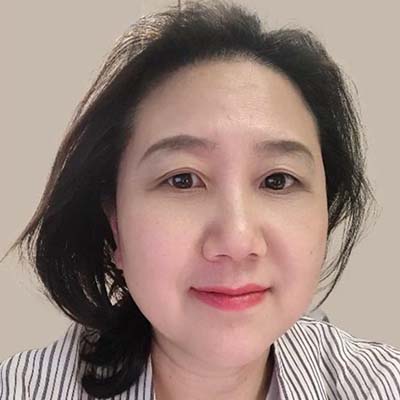
Hajeen Choi
Dr. Hajeen Choi is an Assistant Teaching Professor in the Management & Technology and Instructional Design & Technology programs at Bowling Green State University. She teaches courses such as ‘Technology Forecasting for Emerging Technologies and Innovation’ and ‘Information Technologies: Trends and Issues.’ Dr. Choi earned her MBA from Duke University and has about 15 years of industry experience as an e-learning service planner, IT consultant, management consultant, and R&D PMO in an educational company. She holds a Ph.D. in Instructional Design and Learning Technologies from Florida State University. Her research interests focus on learner motivation and engagement in online learning, Human-AI collaboration in teaching and learning, the use of social media in education, and informal network learning. Currently, she is investigating topics such as otherness and engagement in online learning, fostering a sense of belonging through social media, and examining student engagement and social dynamics using social learning analytics.
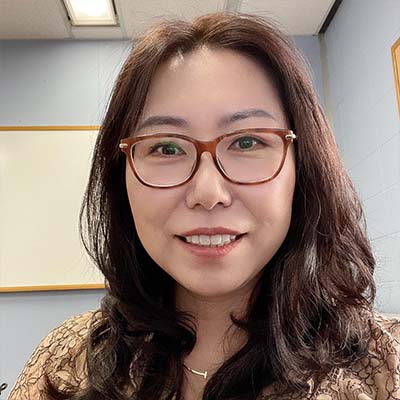
Hannah Park
Dr. Hannah Park is a researcher at the Wisconsin Center for Education Research at the University of Wisconsin-Madison. Her research focuses broadly on written language and discourse representing a spectrum of print and digital media, with special emphasis on comprehension and production processes involved in acquiring new language and literacy skills. Major areas of research include: teacher education; multimodal composing; computer-mediated communication and online discourse; English language development and content standards implementation; teacher identity and pre-/in-service teacher training; AI and bilingual education; and learning and cognition, viewed from sociocultural perspectives. She has authored/co-authored over 15 peer-reviewed publications and around 85 scholarly presentations.
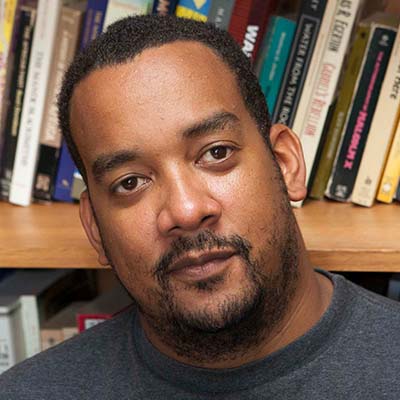
Jemel Aguilar
Dr. Jemel P. Aguilar is an associate professor at Fordham University Graduate School of Social Services. He specializes in human behavior in the social environment with an emphasis on theory development and testing. Human behavior in the social environment is a vast area of study so Dr. Aguilar employs qualitative, quantitative, and computational approaches to answer his research questions. As a clinician, he practices with low-income and uninsured children and families that experienced traumatic situations, marginalized chronic illnesses, or clinicians interested in serving these populations. He is independently licensed in the State of Connecticut. Dr. Aguilar earned his Ph.D. in Social Welfare and Master of Social Work from the University of Minnesota, and a Master of Public Health from Southern Connecticut State University.
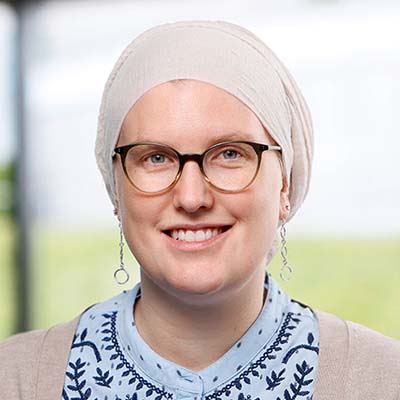
Kamila Misiejuk
Kamila Misiejuk is currently a Postdoctoral Researcher at the Center for Advanced Technology for Assisted Learning and Predictive Analytics (CATALPA) at FernUniversität in Hagen, Germany. She holds a PhD in Learning Analytics from the University of Bergen in Norway. Misiejuk contributed to numerous international research projects, focusing on virtual and remote labs, co-designing teacher dashboards, and developing teaching materials for higher education instructors to support the implementation of learning analytics-based interventions. She has published on a wide range of topics, including peer assessment, human-AI interaction, and learning analytics dashboards. Her research focuses on analyzing educational data, developing novel data analysis techniques, and creating practical, data-driven solutions for both practitioners and students. In addition to her research, Misiejuk is a board member of the International Society for Quantitative Ethnography. Recently, her project on disseminating and evaluating innovative network techniques for learning and teaching was awarded funding through the Flexibler Fonds Nachwuchs.
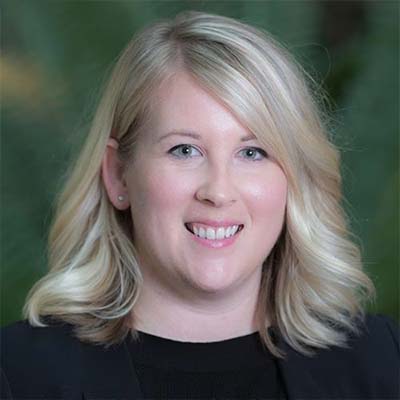
Kim Spencer
Kim Spencer is a Researcher and Associate Director with the Center for the Improvement of Mentored Experiences in Research (CIMER) at the University of Wisconsin-Madison. Kim oversees evaluation and data efforts across a wide portfolio of projects centered around advancing the science and practice of research mentorship and investigating the impact of interventions across contexts and national dissemination efforts. Kim has over 10 years of experience leading large scale evaluation projects and also supports mentorship education projects in the UW Institute for Clinical and Translational Research. Her research focuses on exploring individual and institutional factors that may impact the implementation of evidence-based mentorship education. Kim received her M.S. in Educational Psychology from the University of Wisconsin-Milwaukee.
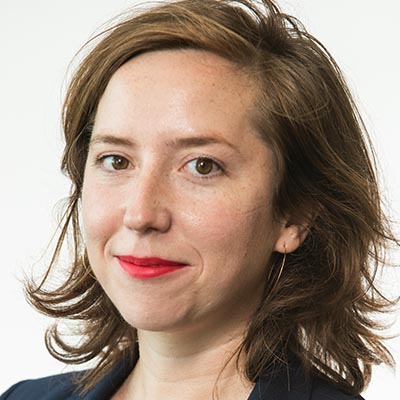
Margaret Downey
Dr. Margaret Mary (Maggie) Downey is an Assistant Professor at Tulane University’s School of Social Work with a focus on the social and structural determinants of health inequities, particularly in reproductive and maternal health. Her research examines structural factors in reproductive decision-making, healthcare workers’ roles in policy implementation, and structural competency in health professional training. Dr. Downey received her BA in English Literature from Temple University and her MSW and PhD in Social Welfare from the University of California, Berkeley. Prior to joining Tulane, she completed post-baccalaureate studies at the University of Pennsylvania and practiced as a doula in Philadelphia. She is co-Principal Investigator on a National Institute of Child Health and Human Development award studying intimate partner violence screening during pregnancy and postpartum, and a recipient of the NIH BIRCWH Award and American Public Health Association’s New Investigator Award, for which she will use Epistemic Network Analysis to examine the text files of the National Violent Death Reporting System.
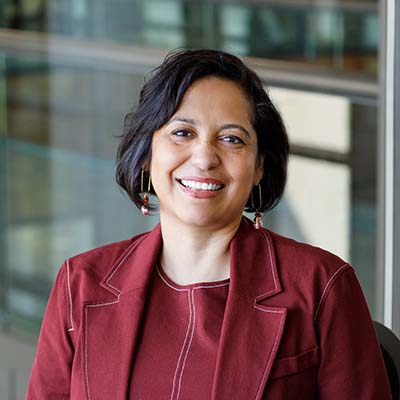
Mariana Castro
Dr. Mariana Castro is a research scientist at the University of Wisconsin Madison and serves as co-director of the Multilingual Learning Research Center, a center housed at the Wisconsin Center for Education Research and dedicated to advancing the outcomes of multilingual learners through socially just research. Dr. Castro’s research examines the preparation of current and future STEM teachers to support multilingual learners’ academic development through culturally and linguistically sustaining approaches. Her most recent work investigates the use of innovative technologies, such as mixed-reality simulations and AI, to support educators’ rehearsals in the integration of translanguaging pedagogies and core teaching practices. She brings to her research over 30 years of experience in education, which includes over a decade as a K-12 educator and 16 years leading the development of language development standards and professional development at WIDA, a large state consortium focused on language development and academic achievement of English learners.
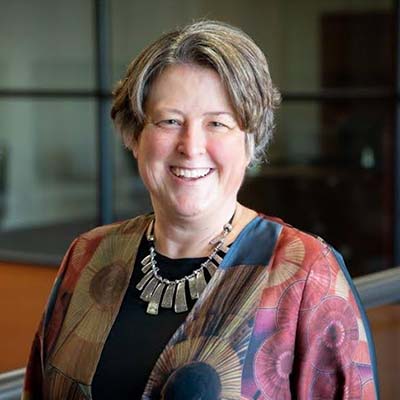
Melissa McDaniels
Melissa McDaniels is Associate Executive Director & Scientist at the Center for the Improvement of Mentored Experiences in Research (CIMER, www.cimerproject.org) at the University of Wisconsin-Madison. She has been a co-investigator on numerous scientific workforce development projects since 2014, including the NIH-supported National Research Mentoring Network (NRMN, https://nrmnet.net/) and the American Physical Society’s NSF INCLUDES Inclusive Graduate Education Network (IGEN) project, focusing on addressing issues of equity in graduate education in the physical sciences. In addition to UW-Madison, She has over 25 years of experience supporting equity-centered organizational change, graduate student and faculty development, and mentorship ecosystem enhancement. Dr. McDaniels has held full-time positions at Michigan State University, Northeastern University, and National Geographic Society. She holds degrees from Michigan State University (Ph.D.), Boston College (M.A.), and University of Michigan (B.A.).
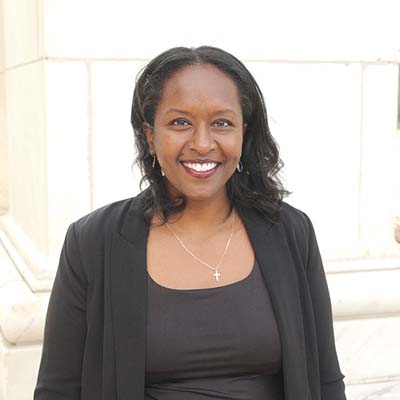
Meseret Hailu
Dr. Meseret F. Hailu is an Assistant Professor of Higher Education at the Louise McBee Institute of Higher Education, University of Georgia (UGA). She is exploring two lines of research concerning the experiences of undergraduate Black women in different geographic settings: East Africa and the United States. Her primary research agenda investigates how articulations of identity shape educational retention and reflect institutional culture. Methodologically, Dr. Hailu approaches her work through mixed methods, specializing in qualitative research. Her work has been published in top-tiered journals, including Comparative Education Review, Journal of Diversity in Higher Education, and Research in Higher Education. Additionally, she has received funding from the: National Academy of Education/Spencer Foundation, Fulbright Program, National Science Foundation, and the United States Agency for International Development. Prior to coming to UGA, Dr. Hailu was a faculty member at Arizona State University and a Postdoctoral Research Associate at The Ohio State University.
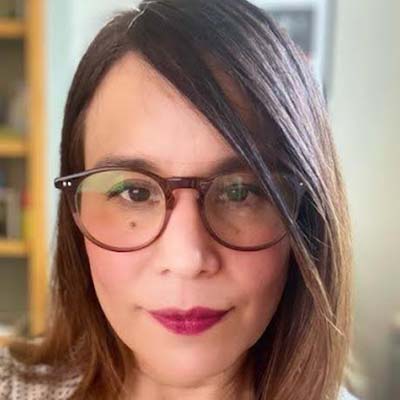
Minea Armijo Romero
Dr. Minea Armijo Romero (she/her) serves as an Assistant Professor in the College of Teacher Preparation, Administration, and Leadership at New Mexico State University. With over 20 years of experience as an educator in New Mexico and the US-Mexico borderlands, she specializes in bilingual education and dual-language instruction, particularly in the research and clinical preparation of teacher candidates. Her teaching background spans K-12 and higher education, including roles at Central New Mexico Community College and the Universidad Autónoma de Ciudad Juárez. Dr. Armijo Romero’s research focuses on transnationalism, translingual practices, border theory, intercultural education, and bilingual education in indigenous communities of rural México and New Mexico. Her work highlights a commitment to advancing biliteracy and understanding linguistic diversity. In addition to her academic contributions, she consults nationally on biliteracy initiatives, fostering transformative educational practices that bridge cultural and linguistic divides.
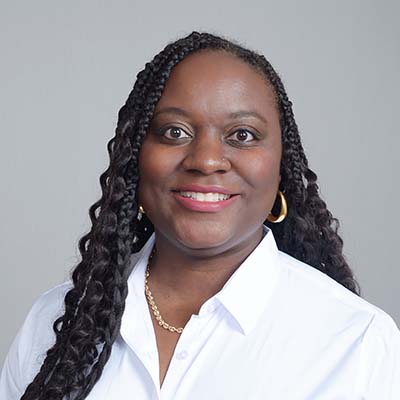
Nastassia Jones
Dr. Nastassia N. Jones is a Professor of Science and Mathematics Education at Southern University and A&M College, where she is deeply committed to providing STEM experiences and opportunities to marginalized communities. Holding a Bachelor of Science in Biology from Albany State University and both a Master of Science and Doctor of Philosophy degrees from the Molecular Biology, Microbiology, and Biochemistry program at Southern Illinois University, Dr. Jones has experience in teaching various undergraduate biology and graduate STEM education research courses and providing professional development to in-service K-12 STEM teachers. Her interests are integrating service learning, technology, and authentic research experiences into STEM courses, K-12 teacher professional development focused on increasing STEM confidence and competency, and grant writing to provide STEM programs to marginalized communities. Dr. Jones has two current research projects: scientific identity development of middle and high school students and educators in a global informal science program, and effective teacher professional development in integrating virtual reality in middle and high school classrooms.
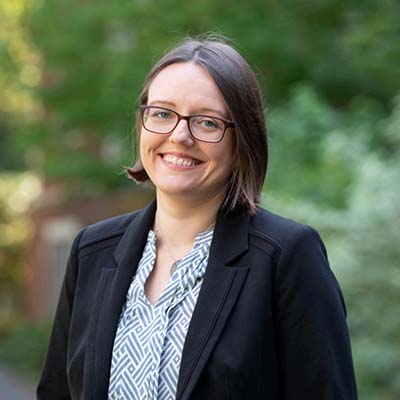
Nicole James
Dr. Nicole James is an Assistant Professor in the Chemistry Department at Reed College. She holds a B.A. in Chemistry and German Studies from Whitman College, and a Ph.D. in Chemistry from the University of Chicago. Her graduate work focused on physical and materials chemistry, which prompted her interest in how students activate their chemistry knowledge in interdisciplinary contexts. To focus on this, she transitioned to discipline-based education research in her postdoctoral position at Northern Illinois University and now leads a chemistry education research group at Reed College. More about the group and current projects can be found at www.reed.edu/chemistry/james. Outside of work, Nicole enjoys hiking, gardening, and spending time with her cats (when inside) and chickens (when outside).
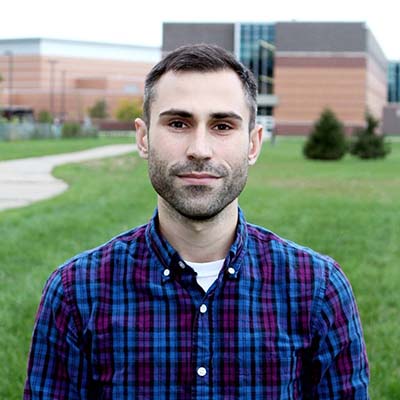
Patrick Beymer
Dr. Beymer’s research program comprises two complementary lines of inquiry. First, Dr. Beymer investigates the dynamics and complexities of students’ classroom experiences with motivation, emotion, and engagement in K–16 STEM settings. Second, recognizing that motivation is a dynamic process, Dr. Beymer aims to advance the application of intensive longitudinal methodologies for both research and intervention in educational contexts. The overarching goal of these research lines is to further motivate theory, thereby informing practice and supporting students in their pursuit of academic excellence, particularly within STEM domains.
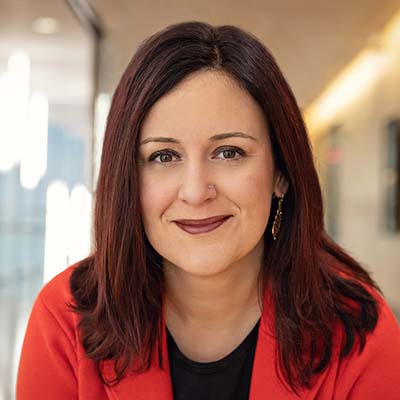
Rebecca Quintana
Rebecca M. Quintana is an Assistant Professor of Education Practice at the Marsal Family School of Education at the University of Michigan (U-M). She co-leads the Rackham Learning Experience Design Graduate Certificate. Her teaching is situated within the Designing for Innovation: Learning, Instruction, and Technology concentration within Educational Studies. Quintana’s scholarship emphasizes the application of learning sciences to the design of technology-rich learning environments, with a focus on tools that enable social interaction and immersive learning. In her teaching, she advances equitable and inclusive approaches to instruction. She has received recognition for teaching innovation with an award from the Digital Studies Institute. Quintana is an active presenter at major research conferences, such as the Annual Meeting of the American Educational Research Association (AERA) and the International Conference of the Learning Sciences. She currently holds the elected position of Program Chair for the Online Teaching and Learning SIG within AERA.
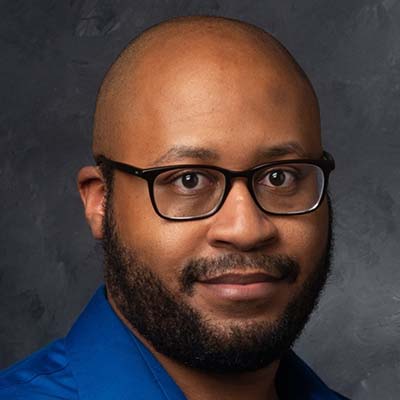
Salim George
Salim George is a Senior Learning Analytics Specialist for the Office of Teaching, Learning, & Technology at the University of Iowa. He holds advanced degrees in Learning Sciences and Educational Measurement/Statistics. He also has extensive practical experience in program evaluation. In his role, he supports faculty in making data-informed decisions about their teaching through direct consultation and facilitating the development of learning analytics tools. He also collaborates on research projects pertaining to learning in the context of higher education. Because of his prior work with TRIO programs such as Upward Bound and Student Support Services, he is particularly interested in research and interventions that help undergraduates as they transition from high school into college. He is also broadly interested in how insights from the Learning Sciences can (1) benefit people in their everyday lives, (2) help programs achieve their desired outcomes, and (3) inform the design and use of technology.
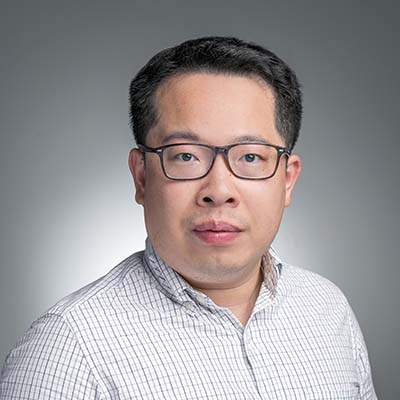
Shengjie Lin
Shengjie Lin is an Assistant Professor in Educational Psychology at the University of New Mexico. He adopts a social-contextual approach to examine the intersection of motivation, emotion, and creativity, primarily in STEM learning. In his main research line, Shengjie focuses on how students’ motivation is shaped by their own characteristics, cultural context, and the socializers (e.g., parents, siblings, teachers) around them. He also investigates the role of emotion and emotional beliefs in students’ motivation, creativity, and achievement. Moreover, he examines the effects of sibling status on students’ motivation and social-emotional development, with a particular focus on only children. Shengjie earned his Ph.D. in Educational Psychology from the University of Texas at Austin and completed postdoctoral training at the Center of Emotional Intelligence at Yale University.
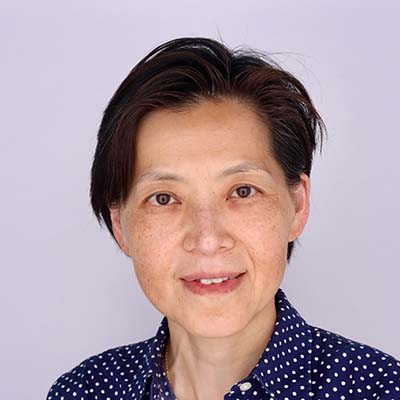
Wanju Huang
Dr. Wanju Huang is a Clinical Associate Professor of Learning Design and Technology and an Innovation and Entrepreneurship Fellow at Purdue University. Her research focuses on online education, professional development in STEM fields, augmented and virtual reality, as well as the application of artificial intelligence in the educational sector. She has been recognized with awards for her contributions to teaching and instructional design, and has presented and published her work at both national and international conferences. Dr. Huang has played pivotal roles in several NSF-funded projects as Co-PI and essential personnel, and she is currently the Director of Learning and Assessment for the Scalable Asymmetric Lifecycle Engagement (SCALE) program, which is funded by the Department of Defense.

Yueming Jia
Dr. Yueming Jia is an educational researcher and developmental psychologist with over 18 years of experience in program evaluation, educational policy research, and child development. She has worked with various non-profit organizations and school districts and currently serves as an independent research and data analysis consultant.
QE Fellows 2024 Cohort

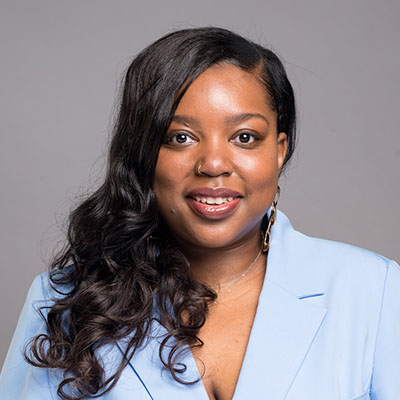
Prof. Aireale J. Rodgers
Dr. Aireale J. Rodgers is an Assistant Professor of Higher Education at the University of Wisconsin-Madison. Drawing on frameworks from critical race studies and the learning sciences, Dr. Rodgers’ scholarship seeks to illuminate how people’s everyday (mis)understandings about race and racism shape learning across various higher education ecologies. Currently, she studies faculty development programs, graduate student socialization processes, and classroom teaching and learning to better understand how educators can facilitate learning that advances critical race consciousness for faculty and students in postsecondary institutions. Dr. Rodgers holds a B.S. in Social Policy and an M.A. in Learning Sciences from Northwestern University’s School of Education and Social Policy, and a Ph.D. in Urban Education Policy from the University of Southern California’s Rossier School of Education.
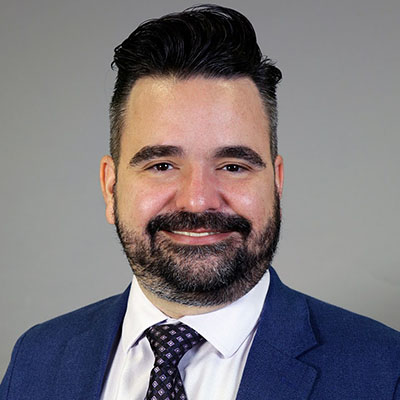
Prof. Alfredo León
Alfredo León earned a B.S. in General Science and an M.S. in Biology from the University of Puerto Rico. Recognized as Rookie Teacher of the Year during his four-years as a middle and high school teacher in Florida, he served as laboratory manager at Miami Dade College, and to full-time faculty in 2013. Dr. León taught Biotechnology and Biology courses, emphasizing project-based learning and authentic research experiences. In 2017, he completed an Ed.D. at the University of Florida, focusing on educational technology’s implementation in STEM at community colleges. Dr. León’s later served as chair of the Math & Natural Science department and Interim Dean of Faculty, where he transformed courses, implemented open educational resources, secured external funding, and prioritized enrollment and engagement. Returning to the classroom in 2022, Dr. León continues to implement blended and remote learning strategies, and the application of learning analytics in STEM education research.

Prof. Amanda (Mandy) Peel
Dr. Amanda (Mandy) Peel is an Assistant Professor of Curriculum and Instruction, School of Teacher Preparation, Administration, and Leadership in the College of Health, Education, and Social Transformation at New Mexico State University. She specializes in STEM education and her research focuses on integrating computational thinking into core science classes. She also specializes in leveraging socio-scientific issues, such as genetically modified food and climate change, for culturally relevant science learning. Dr. Peel works with pre-service teachers, in-service teachers, teacher educators, and K-12 students. Dr. Peel earned a B.S. in Agricultural Biology and a M.S. in Molecular Biology from New Mexico State University. After that, she earned her Ph.D. in Curriculum and Instruction with a Science Education emphasis from the University of Missouri. Before returning to NMSU, she was a Postdoctoral Scholar and transitioned to Research Assistant Professor at Northwestern University.

Dr. Angela Crumdy
Dr. Angela Crumdy is a Provost Postdoctoral Fellow at the University of Pennsylvania in the Graduate School of Education’s division of Policy, Organizations, Leadership, and Systems. Prior to graduate studies, she was a high school English teacher. As an interdisciplinary scholar trained in cultural anthropology, Dr. Crumdy is passionate about using ethnographic methods to explore the social lives of teachers and leveraging research findings to improve the experiences of teachers and the people they impact. Dr. Crumdy’s scholarship has won awards from major organizations in the fields of anthropology and education including the Wenner-Gren Foundation, the Spencer Foundation, the National Academy of Education, and the Council on Anthropology and Education. Dr. Crumdy’s primary research interests include the social lives of teachers, teacher retention, and social reproduction theory. She is particularly interested in the experiences of Black women educators throughout the twentieth and twenty-first centuries in the United States and the Spanish-speaking Caribbean.

Prof. Beatriz Galarza Tohen
Dr. Beatriz Galarza Tohen, an academic in STEM and Engineering Education, she holds a Ph.D. in Interdisciplinary Learning and Teaching from the University of Texas at San Antonio, a Master of Science in Engineering from The Georgia Institute of Technology and an MBA from The Georgia Institute of Technology. Her research delves into gender equity in cybersecurity and computational thinking, employing Epistemic Network Analysis. With diverse experiences including a virtual internship at the University of Wisconsin-Madison and roles at the University of Texas at San Antonio, where she excelled as a Graduate Research Assistant, Teaching Assistant and Instructor of record. Dr. Galarza has also made notable contributions in industry, optimizing IT , Mobile App Development, Software Engineer, Supply Chain Management, and Industrial Engineering projects. Actively engaged in service and outreach, she has organized conferences and led student organizations. Dr. Galarza has several presentations on computational thinking, cybersecurity, and gender equity in STEM. Currently, she serves as a Visiting Assistant Professor at Purdue University School of Engineering Education, focusing on First Year Engineering and research in Computational Thinking and Model Eliciting Activities.

Prof. Cynthia Lima
Cynthia Lima holds a degree in Science Education from the University of Texas at Austin. In 2020 she joined the Department of Interdisciplinary Learning and Teaching at the University of Texas at San Antonio as an Assistant Professor of STEM Education. Her research focuses on how pre-service teachers and elementary students learn science using STEM environments anchored in real-world phenomena. Her research has been supported by the National Science Foundation and other leading organizations, which has enabled her to publish her work in national and international journals.
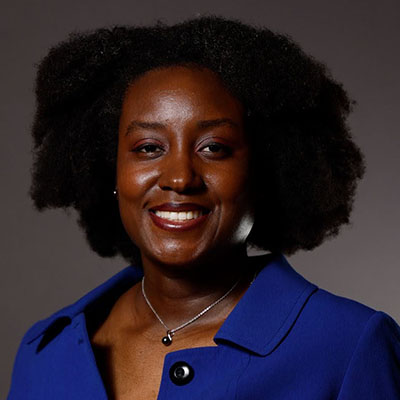
Prof. Geraldine L. Cochran
Dr. Geraldine L. Cochran is an Associate Professor in the Department of Physics at The Ohio University specializing in equity-oriented physics education research. Cochran is passionate about teaching physics and supporting efforts to broaden participation in STEM fields by identifying and mitigating the negative impact of inequities in physics and modifying practices and policies to eliminate inequities in physics. Cochran is a member of the Inclusive Graduate Education Network, a fellow of the American Physical Society, and a fellow of the American Association of Physics Teachers. Cochran earned her Ph.D. in curriculum and instruction with a cognate in physics and her Ed.S. in science education with a specialization in teacher preparation from Florida International University in Miami, FL and her M.A.T. with a specialization in secondary school physics, her B.S. degree in physics and her B.S. degree in mathematics from Chicago State University in Chicago, IL.

Dr. Grace C. Lin
Grace C. Lin is a Learning Scientist and Assessment Designer at Massachusetts Institute of Technology with over 10 years of experience in research projects focusing on building children’s and students’ capacity to learn. An avid believer in transparent methodologies in research and the translation of scientific findings to the practical audience, she has contributed to building a measures repository, particularly its rating systems, of early childhood measurements meant for practitioners to use. In recent years, Grace’s work has turned to child-centered AI, AI education for children, the applications and implications of emerging technology for learning, and their influences on human relationships. Her central tenet is that learning should be fun! Outside of her research role, she enjoys teaching statistics and quantitative methods as a Lecturer of Quantitative Psychology at Harvard University.
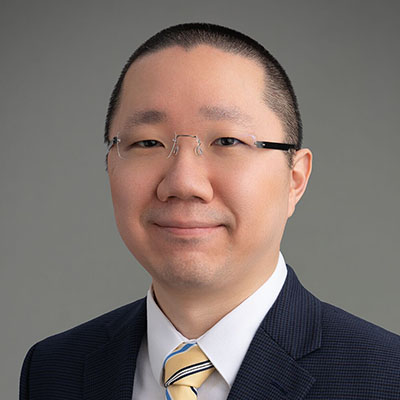
Prof. Hee Soo Jung
Hee Soo Jung is an Associate Professor of Surgery at the University of Wisconsin School of Medicine and Public Health and the Program Director of the University of Wisconsin Surgical Critical Care Fellowship Program. He is a board-certified trauma and acute care surgeon and the Director of Surgical Critical Care Services at UW Health. Dr. Jung holds a B.A. in Cellular and Molecular Biology and an M.D. from Northwestern University. Dr. Jung’s research focuses on reducing preventable errors in trauma care through the development of novel educational and assessment methodologies. His current focus is interdisciplinary team communication and its impact on patient care.
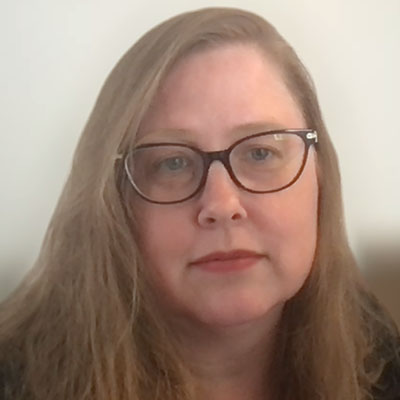
Dr. Jaclyn Ocumpaugh
Dr. Ocumpaugh has been publishing in the field of learning analytics for over a decade where her work focuses on using data to improve student engagement and learning outcomes. Her work spans efforts across a range of learning environments, including intelligent tutoring systems for math, online learning games for science, and even mobile computer assisted learning systems for language acquisition. Dr. Ocumpaugh is perhaps best-known for formalizing the Baker Rodrigo Ocumpaugh Monitoring Method, which has been used to develop machine-learned sensor-free affect detection. BROMP-based models have been used in dozens of publications (see review in Baker et al., 2020). This work, which is at the intersection of learning analytics and human computer interaction (HCI) has continued to evolve, as research demonstrates the need for more qualitative data in order to make sense of student learning patterns and to develop new interventions.

Dr. Jonathan Lee Montoya
Jonathan Lee Montoya is a Visiting Scholar at Stanford University Center for Integrated Facility Engineering. Jonathan studies equitable pathways in STEM disciplines at the intersection of Engineering and Computer Science Education. Jonathan is a practitioner at heart. He holds secondary teaching credentials in Biological Sciences, Geosciences, and Career Technical Education. He has also taught Virtual Design and Construction. Jonathan received his Ph.D. and M.A. in Education from the University of California, Irvine, where he was an NSF Ridge to Reef Scholar and Eugene Cota-Robles Scholar. He also holds an M.A. in STEEM education from Santa Clara University, where he was an NSF Robert Noyce Teacher Scholar.

Prof. Joshua Drew
Dr. Joshua Drew is an assistant professor of vertebrate conservation biology at the State University of New York’s College of Environmental Science and Forestry in Syracuse NY. During his career he has described eight species of fish, worked on discovering the evolution of marine biodiversity in the South Pacific and investigated shark toothed weapons of the I-Kiribati people. Now, as the director of the CHAOS (Coupled Human and Aquatic Organismal Systems) lab, he and his students use feminist approaches to addressing projects that identify strategies for marine conservation that center and support the rights and voices of Indigenous people and the waters they depend on. He is also a strong believer in outreach and making science accessible which has led him to present his research to a variety of audiences ranging from US senators to drag queens
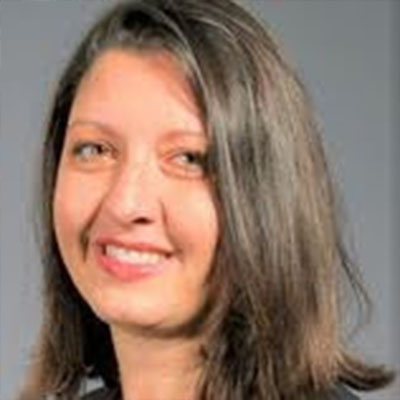
Dr. Kameryn Denaro
Dr. Kameryn Denaro is a Research Scientist for the Division of Teaching Excellence and Innovation at University of California, Irvine, where she focuses on a range of research topics related to student success in higher education. Her research focuses on equity and institutional transformation. She develops statistical methodologies to provide robust estimation of student outcomes and explores new approaches to data mining, machine learning, quantile regression and learning analytics to analyze the massive amounts of learning and educational data. Dr. Denaro has taught courses in Mathematics, Statistics, and Computer Coding at San Diego State University, Los Angeles Valley College, and Golden West College. Her extensive background as an educator has been invaluable in informing her research practice and areas for improvement in higher education.

Luis Montero-Moguel
Luis Montero-Moguel is a Ph.D. Candidate in Interdisciplinary Learning and Teaching specializing in STEM education at The University of Texas at San Antonio (UTSA). Luis holds an MSc in Mathematics Education from the University of Guadalajara and a BSc in Mechanical Engineering. Luis is an NSF-CADRE fellow. As part of his doctoral program, Luis has earned a Graduate Certificate in iSTEM Education and a Graduate Certificate in Engineering Education. With experience as an engineer and a mathematics teacher, he promotes the expansion of equitable and high-quality learning opportunities for both engineering and K–12 students through mathematical modeling. His research focuses on exploring the process of refining mathematical ideas and engineering concepts that engineering students develop while engaging in model development sequences built in real engineering contexts. At UTSA, he is graduate research assistant on two grants, one funded by NSF and another by IES.
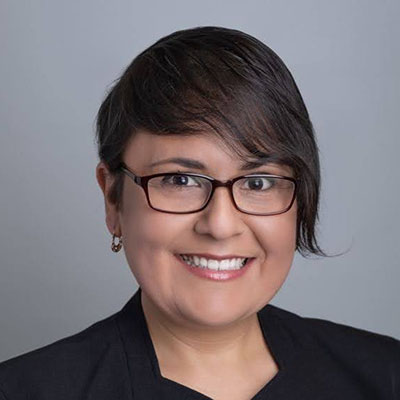
Prof. Matilde Sánchez-Peña
Dr. Matilde Sánchez-Peña is an assistant professor of Engineering Education at University at Buffalo – SUNY where she founded and leads the Diversity Assessment Research in Engineering to Catalyze the Advancement of Respect and Equity (DAREtoCARE) Lab. Her research focuses on three interrelated areas. First, exploring dominant cultures and narratives existing in engineering spaces with respect to health and well-being, including issues of mental health, with the goal of informing cultural changes that make space for a more holistic view of engineering as a field. Second, challenging the methodological frontiers for assessing gains in diversity, equity, and inclusion at universities using complex systems theories and methods from engineering and the social sciences, with the goal of highlighting areas of opportunity for institutions to address injustices to marginalized groups. Third, studying how to teach data science concepts effectively, and how to use them as a tool to enhance the training of socially responsible engineers.
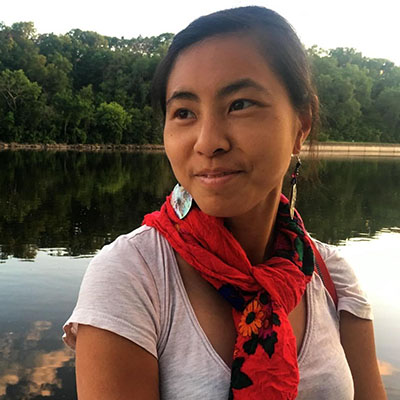
Prof. Meixi
Meixi is a Hokchiu learning scientist and former middle school math teacher from Singapore who also spent summers growing up in Lahu community in northern Thailand. Her research interests sit at the intersection of land-based education, historical, cultural, ethical and political dimensions of learning and human development, and Indigenous futurities. For the last decade Meixi has been part of grassroots education movements across Mekong and México with educators concerned with creating more humanizing forms of teaching and learning through family-based curriculum and evaluation, and Indigenous stories and STEM education.
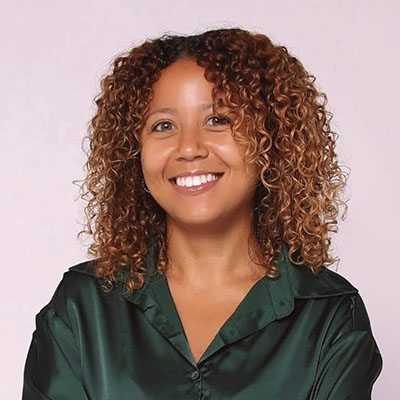
Mi'Kayla Newell
Mi’Kayla Newell is a driven and passionate scholar currently pursuing her doctoral degree in Educational Psychology. She received her B.S. in Psychology and Philosophy from Oklahoma State University (2018) and master’s in educational psychology from Georgia State University (2020). Her experiences as an undergraduate student navigating a predominantly white institution were pivotal years that shaped her academic path and served as a catalyst for her research pursuits. Mi’Kayla’s research focuses on understanding the nuanced ways interactions and practices that occur in students’ learning environments within science, technology, engineering, and mathematics (STEM) disciplines impact the multifaceted processes involved in the science identity development of African American STEM majors.

Prof. Natalie S. King
Natalie S. King, PhD is an associate professor of science education at Georgia State University in Atlanta, GA. Her scholarly work focuses on advancing Black girls in STEM education, community-based STEM programs, and the role of curriculum in fostering equity in science teaching and learning. Dr. King is a recipient of the 2023 National Science Foundation Alan T. Waterman Award – the nation’s highest honor for early career scientists and engineers. She is the first educator to receive this recognition. Dr. King is also an NSF Early CAREER Award (#1943285) recipient whose research challenges the capitalist agenda for encouraging girls’ involvement in STEM. She elevates the identities and brilliance of Black girls in her scholarship, programs, and grant projects. In addition, Natalie King serves as the Principal Investigator of an NSF Noyce project (# 1852889) seeking to diversify the STEM teaching workforce. Dr. King is the founder and executive director of I AM STEM, LLC and partners with community-based organizations to provide Black and Brown children with access to comprehensive academic summer enrichment programs that embrace their cultural experiences while also preparing them to become productive and critically-conscious citizens.

Dr. Nicholas Minar
Dr. Nicholas Minar is currently Director of Research and Reporting at NAF, an education nonprofit that works with high schools across the country to establish career academies. Because NAF primarily serves students of color from underserved, underrepresented communities and schools, Dr. Minar’s research interests focus on the long-term effects of Career and Technical education and equitable access to postsecondary education and the labor market. Since NAF also works to bring employer partners and schools together to better serve young students, Dr. Minar also has an interest in researching the effectiveness and characteristics of successful industry involvement in the CTE space. Nick has been with NAF for just over 5 years now and is serving as Co-PI on two NSF Grants, one focusing on High Achieving African American Males in the area of STEM education, and one focusing on best practices for teacher retention with a focus on Black/AA males teaching STEM.

Prof. Patricia Becker
Patricia Becker (Assistant Professor, Criminology) is a Criminologist at the College of New Jersey (TCNJ). She received a B.A. in Criminal Justice and Sociology with a minor in Women’s Studies from La Salle University. She earned her M.A. and Ph.D. in Criminology from the University of Delaware. Her dissertation explored how incarceration structures the relationships between fathers and their children, and in turn, how this relationship impacts the desistance process. Her current research interests are broadly focused on understanding the various dimensions of crime and victimization. Specifically, Dr. Becker’s research explores the role and importance of families in the reentry process of justice-involved individuals, how social and structural dynamics produce and reproduce oppression and harm, and the importance of conceptual framing and measurement of sexual violence and how it impacts prevention efforts. At TCNJ, her pedagogy centers critiques of power, privilege, and racism and how they contribute to oppression and violence.

Prof. Rebecca A. Cruz
Rebecca A Cruz, Ph.D. is an assistant professor of education at Johns Hopkins University in the department of Innovative Teaching and Leadership and the Center for Safe and Healthy Schools. Her research interests include examining disproportionality in special education and exclusionary discipline in order to build capacity to address drivers of inequality in student outcomes through policy. Rebecca’s work contributes to redefining the concept of inclusion from a perspective that considers disability, not as an individual trait but as a product of political, social, and historical practices. Rebecca applies a multidisciplinary approach, with projects encompassing Sociology of Education, Education Policy, Longitudinal Data Analysis, and Critical Theory. Prior to beginning her doctoral studies at the University of California, Berkeley, Rebecca taught in middle and high school settings to develop co-teaching and inclusion service delivery models.

Prof. Ruth Akumbu
Dr. Ruth Vitsemmo Akumbu is a multifaceted leader at the intersection of education, nonprofit, and entertainment. As an adjunct professor at Concordia University Irvine and Bushnell University, she teaches intercultural leadership and leadership, diversity, and globalization. Dr. Akumbu is dedicated to Diversity, Equity, Inclusion, and Belonging (DEIB) and has developed two cultural integration models—Cultural Integration and Augmentation (CIA) and Transfer and Adoption of Universal Principles (TAUP)—through her doctoral research. These models are continuously validated through ongoing research and publications. With over two decades of experience in nonprofit leadership, she has significantly impacted marginalized communities in Cameroon and expanded her influence globally, including educational projects in the US and Kenya. She has overseen initiatives like Jespa’s Journey, Youth Activities, and STEM Centers.
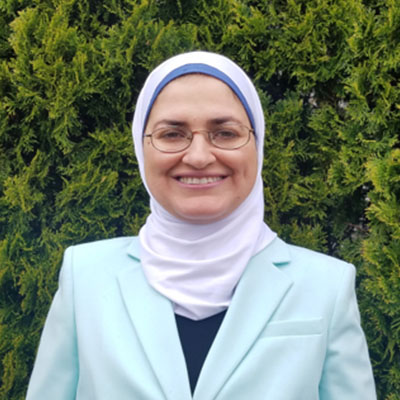
Dr. Samaa Haniya
Dr. Samaa Haniya is an Assistant Professor in Learning Technologies at the Graduate School of Education and Psychology at Pepperdine University. She has more than ten years of extensive experience designing, implementing, and researching e-learning practices in various academic and professional settings. Driven by a passion for educational equity, Dr. Haniya currently serves as the principal investigator of a research project to enhance AI Literacy among pre-service and in-service teachers in underserved schools in Los Angeles County. Furthermore, Dr. Haniya also serves as a co-investigator in a pioneering project that utilizes digital storytelling techniques to develop a mobile application for enhancing the well-being of individuals with disabilities. As an active member of the International Consortium for Innovation and Collaboration in Learning Engineering (ICICLE), Dr. Haniya leads the publication committee to raise awareness about the significance of learning engineering as an emerging field with a transformative potential to improve learning practices.
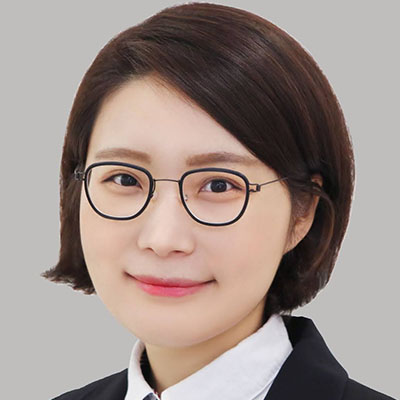
Prof. Sanga Kim
Sanga Kim is an Assistant Professor of Research in the College of Education at the University of Texas at El Paso. She also leads the Data Management Team of the Computing Alliance of Hispanic-Serving Institutions (CAHSI), one of the NSF National INCLUDES Alliance. Her research is centered around learning experiences and outcomes among marginalized students, first-generation college students, and students from low-income families in Science, Technology, Engineering, and Mathematics (STEM) disciplines, advocating equitable educational opportunities for these groups of students. Her current research focuses on noncognitive attributes, college experiences, and career pathways of Latino/a/é students in computer science at Hispanic-serving institutions. She has been involved with several research projects funded by the National Science Foundation to understand the departmental climate in STEM education, support working students in STEM, increase equitable access of K-12 students to computing, and advance K-12 computer science education.
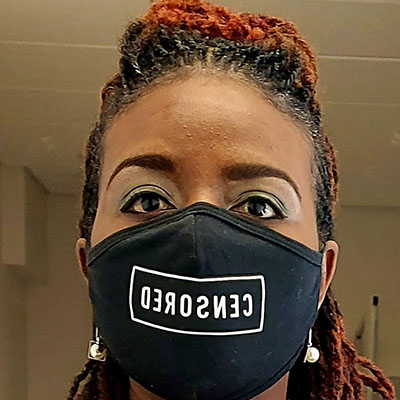
Dr. Tasheney Francis
Francis is a newly minted PhD in the Linguistics Department of the University of Manitoba, Canada. Her Jamaican heritage sensitizes her to the linguistic concerns of her homeland. This, along with her passion for education, led her to design and test a training program for teaching the formal writing system of Jamiekan, a traditionally oral language. Her graduate research, in general though, examines discourse structures. First, she studies the rhetoric of politicizing linguistic choices in Jamaican electoral campaigns, focusing on linguistic ideologies and semiotic ordering. However, her dissertation takes her into the judiciary system, where she analyses identity construction discourse mechanisms among the linguistically marginalized. This research overlaps several varied sub-disciplines and other fields, including gestural studies, cognition, anthropology, city planning and philosophy. Its eclectic distinction sparks myriad other diverse research aspirations. She was awarded Graduate Fellow for Humanities, the University of Manitoba Graduate Fellowship, and was listed among the 2023 Emerging Leaders.

Prof. Verónica Vargas-Alejo
Verónica Vargas-Alejo, PhD in Mathematics Education from CINVESTAV-IPN, México, is a distinguished member of the CONAHCYT National System Researchers at level 1. With over two decades of professional experience as both a researcher and educator since 1995, she currently serves as the coordinator of the master’s degree CONAHCYT Program in Mathematics Teaching in the Department of Mathematics at the University of Guadalajara. Her research is focused on the Models and Modeling Perspective and Teacher training, aiming to foster the development of high school and undergraduate students’ mathematical knowledge and skills. Her work involves modeling real-life situations to enhance mathematical understanding using collaborative learning environments. She has contributed to the field with publications in specialized peer-reviewed, indexed international journals. Additionally, Dr. Verónica is a member of the PME-NA Steering Committee and the International Research Group Campus Viviente in STEM Education.
QE Fellows 2023 Cohort


Adaurennaya “Ada” C. Onyewuenyi
Dr. Adaurennaya “Ada” C. Onyewuenyi, a 2nd generation Nigerian of the Igbo tribe, is an associate professor of Psychology and affiliate faculty of African American Studies at The College of New Jersey. She also leads the Identity Development across the African Diaspora (IDAD) Lab. Her research is located at the intersection of education, human development, psychology, and sociology. Her research program focuses on social inequity in educational attainment, access, and mental health via two research strands: (1) examining how Black youth and emerging adults of the African diaspora (African immigrant, Black American, Caribbean immigrant, and Afro-Latinx) use their Blackness to navigate racism and thrive academically and mentally and (2) cultural and peer influences on ethnically diverse youths’ response to conflict management, reciprocity, and reconciliation.
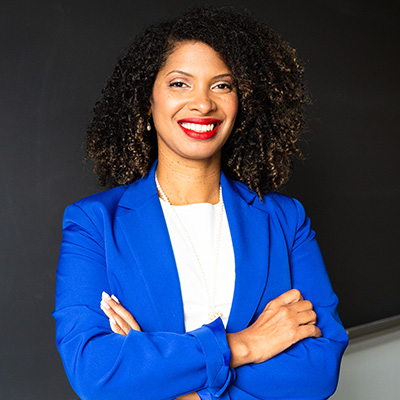
Amalia Daché
Amalia Daché is an Afro-Cuban American scholar and associate professor of higher education at the University of Pennsylvania. Her experiences as a 1980s Mariel boatlift refugee and student navigating U.S. inner-city schools, community college, state college, and a private research-intensive university contribute to her lines of inquiry. Dr. Daché’s major research areas are postcolonial geographic contexts of higher education, Afro-Latina/o/x studies, community and student resistance, and the college-access experiences of African diasporic students and communities.

Andy Nguyen
Andy Nguyen, Ph.D., is a Research Council of Finland (formerly Academy of Finland) postdoctoral researcher working at the Learning & Educational Technology (LET) Research Lab, Faculty of Education and Psychology, the University of Oulu, Finland. He holds the title of Docent (Adjunct Professor) in Applied Artificial Intelligence within the Faculty of Information Technology and Electrical Engineering (ITEE) at the same university. His research interests encompass the intersection of learning sciences, artificial intelligence (AI), data analytics, information systems and technology, and related educational policy and management. He is currently a co-chair of the Advances in Teaching and Learning Technologies minitrack at Hawaii International Conference on System Sciences (HICSS) and an associate editor of the journal of Policy Futures in Education.

Audrey Martinez-Gudapakkam
Audrey Martinez-Gudapakkam is a qualitative researcher with over ten years of experience in STEM education research and evaluation in public schools, community-based organizations, and universities in Massachusetts, Texas, and Mexico. Audrey draws on her prior teaching experience in her work on evaluation projects, which primarily involve STEM-related teacher professional development. Audrey’s other work combines her interests in early childhood education, minorities, and immigrants, including an investigation she is conducting on how to engage Latino families with young children by building on daily activities to teach math and science concepts.
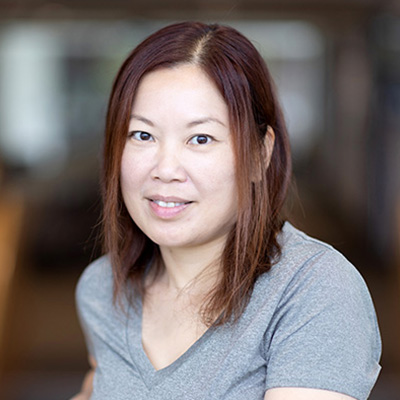
Bowen Hui
Bowen Hui is an Associate Professor of Teaching in Computer Science at the University of British Columbia, Okanagan campus. Her research focuses on learning analytics where she is investigating how educational technologies can be used to promote equitable learning for novice programmers and students working in teams. She is actively involved in the development of the undergraduate curriculum and ways to support student learning. She completed her Ph.D. at the University of Toronto in the area of intelligent user interfaces by developing probabilistic user models to assist people in their interaction with computers. Bowen has worked on other research areas including skills analysis, digital citizenship, computational thinking, and mobile educational games.
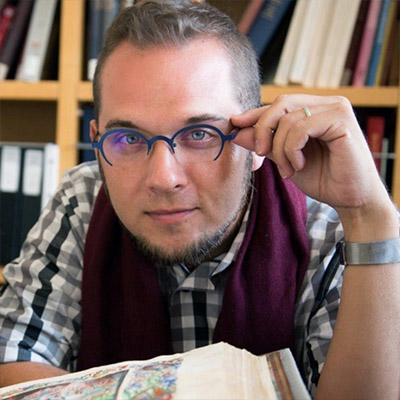
Bryan C. Keene
Dr. Bryan C. Keene (he/él/they/elle) is a professor of art history at Riverside City College and an advocate for student equity and success, especially for the Latinx and LGBTQIA2+ communities. He is an award-winning curator who developed fifteen exhibitions at the Getty Museum and has authored or edited seven books and written dozens of articles. His current project foregrounds queer and trans contemporary artists who have drawn inspiration from medieval and Renaissance art. A parent of two, Prof. Keene is also engaged in partnerships with Riverside Unified School District and the Parent Teacher Association of California, where is the chair for STEAM in Education. He serves on the editorial board of the International Center of Medieval Art and is a member of the International Council of Museums and the Association of Art Museum Curators. He holds a PhD from The Courtauld Institute of Art with a dissertation on Italian choir book illumination.
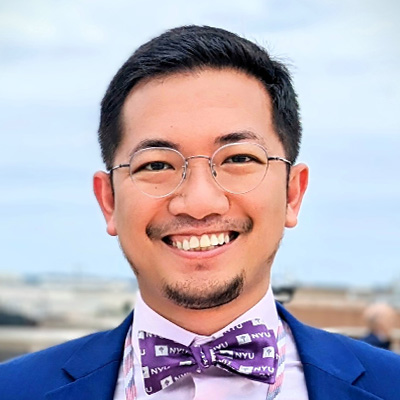
Francisco Castro
Dr. Francisco Castro is a Research Fellow at New York University. His research explores the intersection of computing technology and AI with human creativity and learning. He uses human-centered and participatory approaches to design equitable technologies for social good+justice, education, and community empowerment. Among others, his projects include — the development of creative learning technologies for teaching computing through dance, art, and game design; curricular design for computer science, technology ethics, data, and AI literacy; electronics, wearables, and tangible design toolkits for interactive computing and art making; and data analytics for supporting programming and AI education. He was awarded a Computing Innovation Fellowship by the Computing Research Association and holds a PhD in Computer Science from Worcester Polytechnic Institute. He co-founded The Papaya Project, a multi-institutional initiative for the critical and equitable practice of computing education and research. Prior to NYU, he was a Postdoctoral Researcher at the College of Information and Computer Science at the University of Massachusetts Amherst.
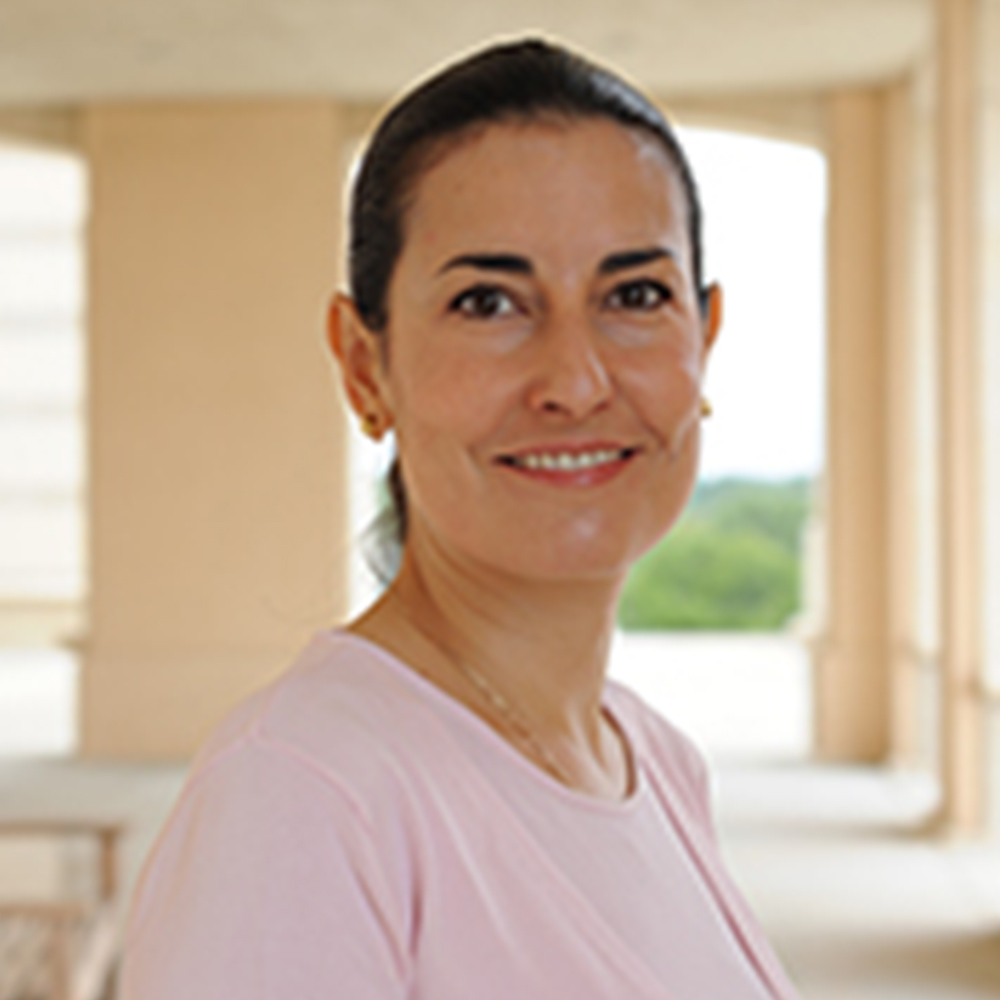
Guadalupe Carmona
Dr. Carmona is a Professor in STEM Education at The University of Texas at San Antonio and also serves as Executive Director of ConTex, an initiative between the University of Texas System and Mexico’s National Council of Science and Technology (Conacyt) to foster binational academic collaborations between Mexico and Texas that are mutually beneficial for both countries. Dr. Carmona’s research has focused on the design, implementation, and evaluation of innovation and technology-supported educational reforms in STEM education in national and international settings.
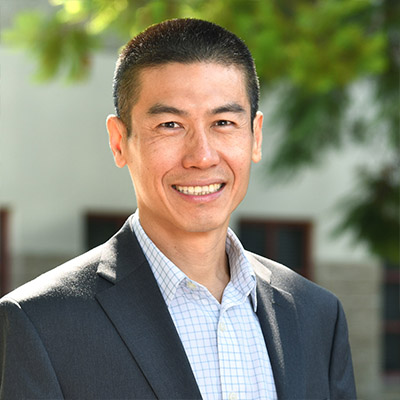
Guan Saw
Guan Saw is an associate professor in the School of Educational Studies at Claremont Graduate University. He received a bachelor’s degree in civil engineering from University of Technology, Malaysia, a Master’s degree in sociology of education from National Taiwan Normal University, and a doctoral degree in measurement and quantitative methods from Michigan State University. Saw’s major research interests include educational inequality; diversity and inclusion; STEM education and workforce; college access and success; and quantitative and mixed methods. His teaching focuses on sociology of education, inequalities in education, educational evaluation and policy analysis, research designs and methods, and statistics and evaluation.
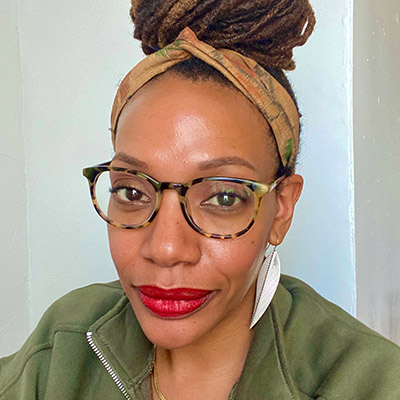
Ja'Dell Davis
Ja’Dell Davis is a Researcher and Evaluator within the Wisconsin Center for Education Research (WCER). Ja’Dell leads the development, review, and testing of the Racial Equity Rubric and Toolkit in collaboration with the Wisconsin Department of Public Instruction and their Evidence Based Improvement Strategies that focus on addressing root causes for racial inequality in student outcomes. Ja’Dell also supports projects centered on knowledge mobilization (among educators throughout Wisconsin) and youth-engaged research and evaluation. These projects complement and inform her work as a researcher and practitioner with interests in community-based research and evaluation, the sociology of education, and out-of-school time/afterschool programs as critical learning contexts.

Jason Buell
Jason Buell is former middle and elementary school science teacher and is currently a postdoctoral researcher at Northwestern University. He studies how to support teachers in learning to teach in increasingly equitable and sophisticated ways within complex systems. His current work is on using curriculum as a catalyst for teacher learning.

Jessica Rivera
Jessica Rivera is currently a Postdoctoral Scholar at the University of Texas at El Paso. She has worked in education for over 15 years, with experience in both K-12 and higher education settings. Jessica’s research is centered around several critical areas, including the examination of Latino/a/é experiences in higher education, understanding the unique challenges faced by minoritized students in STEM disciplines, and the role of Hispanic-Serving Institutions. Her current research focuses on the experiences of Latino/a/é students in computer science at Hispanic-Serving Institutions. As a first-generation college student from humble beginnings, Jessica is personally committed to investigating and advocating for strategies centered on fostering diversity, equity, inclusion and belonging for minoritized populations in higher education.
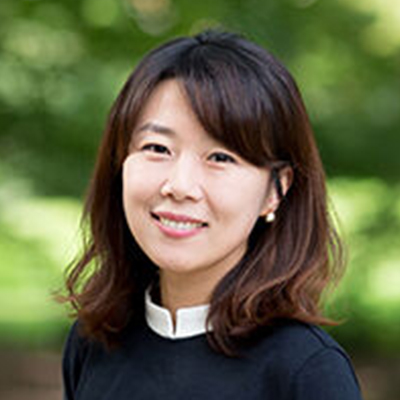
Ji-Hyun Yu
Dr. Yu is currently an Assistant Professor of Learning Technologies at the University of North Texas. She is an experienced learning design and analytics researcher. Her research is centered on two areas: exploring the impact of learner traits, paths, and instructor support on academic achievement and designing equity-focused education by utilizing user-experience design methods. Going forward, Dr. Yu aims to employ various methods of quantitative ethnography to explore the dynamic interplay between learners, technology, and educational environments. Her goal is to harness data analytics to systemically inform and enhance learning design interventions, ultimately fostering innovative and impactful learning experiences.
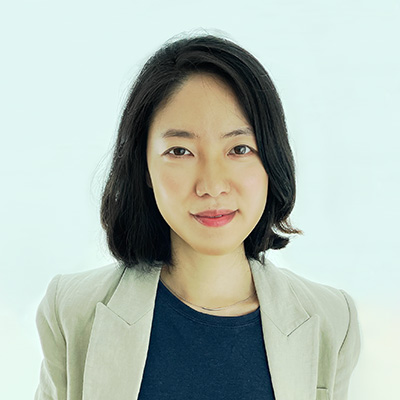
Jina Kang
Jina Kang’s work focuses on analytical approaches to understand the use of new technologies and methodologies in diverse learning environments, aiming to support educational practices and advances for all stakeholders. Her research explores how students learn complex skills in open-ended learning environments. In particular, Jina studies diverse approaches of understanding multimodal data derived from different learning environments that could lead to novel insights into learners’ unique behaviors such as solution paths to problems and actions in either physical or digital environments, and better designing learning environments including pedagogical approaches and materials.

Léa Combette
Léa Combette is a postdoc researcher at the Child Cognition Lab, Boston University. Her research examines how people’s beliefs about the reasons behind individual differences in traits such as intelligence and personality impact their views on the malleability or fixity of these traits, and how these beliefs influence behavior. More precisely, Lea is interested in (1) cognitive biases such as psychological essentialism and (2) interpersonal relationships (teachers-students, parents-kids) and their impact on mindset.
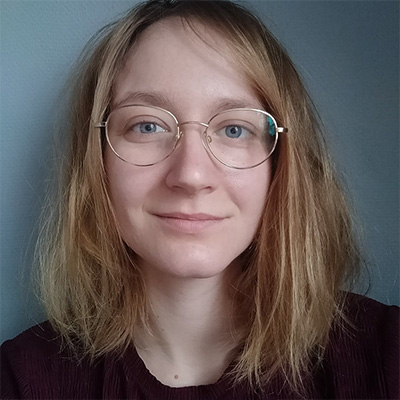
Liv Nøhr
Liv Nøhr has a background in sociology, and is particularly interested in the use of digital media, -teaching tools and learning analytics in education. Liv primarily works with quantitative methods from a wide range of data sources, from surveys to website-scrapings. She also uses more mixed approaches, such as quantitative ethnography. In her current position, Liv is investigating how university teachers’ used technology in their teaching during CO-VID19. For the next three years, she will pursue a PhD in a project on how to make learning analytics that can measure perseverance and curiosity in group work during science education.
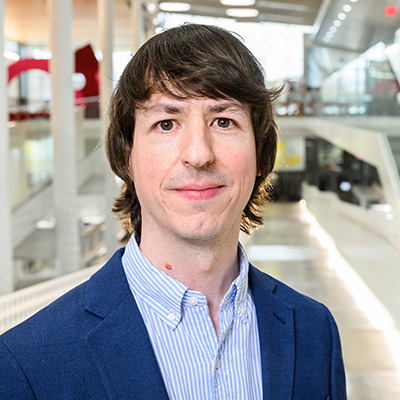
Luc Paquette
Luc Paquette is an associate professor in the department of curriculum & instruction. He completed his PhD in computer science at the University of Sherbrooke where he studied the design knowledge representations for intelligent tutoring systems and the use of those representations to automatically generate pedagogical content. After his PhD, professor Paquette worked as a post-doctoral research associate at Teachers College, Columbia University where he used educational data mining techniques and knowledge engineering techniques to study the behavior of students using digital learning environment.
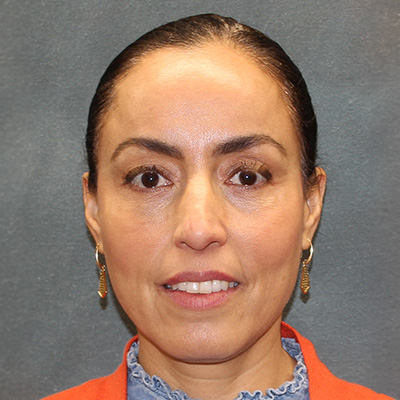
Mariana Alvidrez
Mariana Alvidrez serves as an assistant professor of STEM education in the School of Teacher Preparation, Administration, and Leadership in the College of Health, Education, and Social Transformation at New Mexico State University. Throughout her professional journey, she has developed her expertise by engaging in various capacities within STEM education fields on both sides of the U.S.-Mexico border community. Mariana Alvidrez’s research is centrally concerned with inclusion, exclusion, equity, belonging, and justice issues in STEM education. She is especially interested in examining Latino/a/e students’ experiences in STEM education, often shaped by systemic racism and intersecting systems of oppression. More specifically, her previous and still ongoing work has focused on how teachers of mathematics frame students’ errors and how their framings promote or hinder students’ opportunities to learn, sense of agency, and the development of identities as capable thinkers and doers in the context of mathematical classrooms. Furthermore, among her ongoing projects, she is currently investigating how Latino/a/e computer science students develop their professional skills and identities, centering them as co-researchers and co-designers.
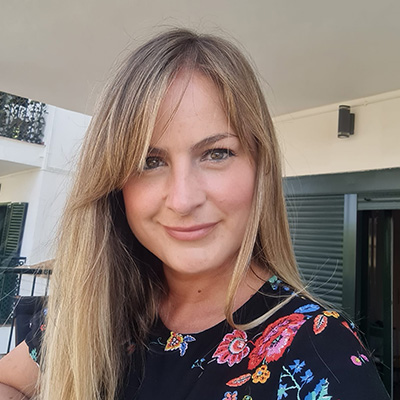
Mirian Checa-Romero
Mirian Checa-Romero is Ph.D. from the University of Alcalá in Developmental and Educational Psychology. Currently, she is an Associate Professor in the area of Developmental and Educational Psychology (Department of Educational Sciences) at the University of Alcalá. She coordinates the Research Group on Educational Innovation and Technology for Human Development (INTED) and is a member of the Isabel Muñoz Caravaca Gender Chair at the University of Alcalá. Her main research lines are: i) the impact that different digital technologies, especially commercial video games, have on the cognitive, social, and emotional competencies of children and adolescents; ii) the ecological and systemic perspective in the development of individuals, considering the socialization of various educational contexts; iii) gender studies with adolescents.
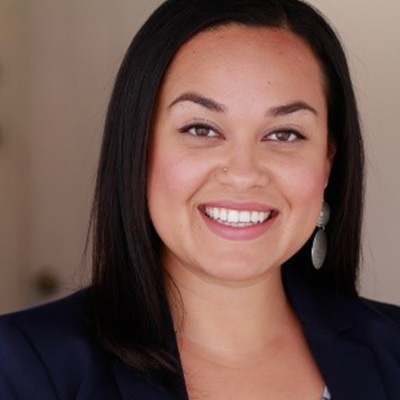
Nichole Garcia
Nichole Margarita Garcia, Ph.D., Assistant Professor of Higher Education, has always been interested in teaching as well as reading and writing books that reflected her experience as a Chicana/Puerto Rican. From her experience in college classrooms and K-12 settings, Garcia was immersed in community partnerships working with elementary, secondary, and post-secondary students of color. Exposing these students to various college campuses and the different disciplines available to them fascinated and led her to realize that she had a very strong interest in education. Upon realizing the low statistics of Latinas and Chicanas in higher education – only 1% go on to graduate with a Ph.D. – her willingness to ensure that her community had access to education became the driving force in her research. Focusing on comparative studies of Chicanx/a/o and Puerto Rican students, her research addresses group differences and the need to disaggregate to best articulate sources of support and barriers in terms of college access and completion. In particular, she studies Chicanx/a/o and Puerto Rican families that have completed a bachelor’s degree or higher to try to understand how intergenerational resources are utilized. Aligning herself with the anti-deficit perspective, her work confronts institutional issues and how they can be addressed to grant families the resources they need for pursuing a higher education.
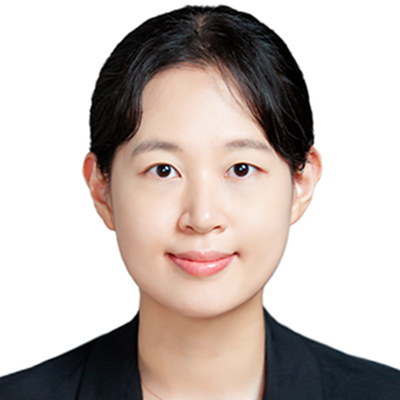
Soo-Yean Shim
Soo-Yean Shim, Ph. D., is an assistant professor in the Department of Biology Education at Seoul National University, South Korea. Her research focuses on understanding and supporting students’ learning through interactions, students’ engagement in epistemic practices of science, and teachers’ collaborative learning in professional learning communities, based on sociocultural and situative perspectives.

Stephanie Sessarego
Stephanie serves as the Senior Evaluation and Data Manager for Assessment for Good. In her role, she oversees the internal formative and process evaluation work and ensures the program is adhering to industry best practices for data security and management. She has a clinical background with a master’s degree in Forensic Psychology from the University of Denver and spent time providing mental health and substance use treatment to youth and adults in correctional, community, and school settings. She has also worked extensively in the interpersonal violence field as a victim advocate and violence researcher and received a degree in Psychology with a social psychology concentration at the University of New Hampshire. Stephanie brings deep experience in research and advanced statistics and in clinical mental health, and a commitment to promoting equity in every role.

Susan Trinidad
Sue Trinidad is an Assistant Professor in the Department of Bioethics and Humanities, having worked as a Research Scientist in the department from 2005-2022. She is the co-Principal Investigator of an NIAID-funded grant, Alaska Native People Advancing Vaccine Uptake, which is exploring the effectiveness of peer outreach, education, and motivational interviewing to increase COVID-19 vaccination among Alaska Native and American Indian people in Alaska. She has conducted empirical bioethics work concerning the ethical, legal, and social implications (ELSI) of genomic research and precision medicine with several large national consortia including the eMERGE Network, the Northwest-Alaska Pharmacogenomics Research Network, the CSER Consortium, and two Centers of Excellence in ELSI Research, the Center for Genomics and Healthcare Equality (CGHE) at UW and the Center for the Ethics of Indigenous Genomic Research (CEIGR) at the University of Oklahoma.
Research interests include the dynamics and ethics of equitable collaboration in health research; patient-centered communication and medical decision-making; the ethical and social implications of genomic research, wide data-sharing, and broad consent; moral and dispositional development; and qualitative methods development. As a white settler engaged in research with Alaska Native and American Indian communities, Dr. Trinidad works to develop participatory, strengths-based approaches to health research that respect Tribal sovereignty and the right of Indigenous peoples to self-determination. She served on the UW Institutional Review Board from 2009-2014.

Vanessa Dennen
Dr. Vanessa Dennen is the Tyner Distinguished Professor of Education at Florida State University, where she teaches in the Instructional Systems & Learning Technologies program in the Department of Educational Psychology & Learning Systems. Her research focuses on pedagogical, social, and ethical aspects of learning and interacting in online environments. She conducts studies on the use of emerging online technologies to support formal and informal learning, the development of identity and community in social media environments, and the use of networked knowledge activities to support learning through everyday life activities and professional development.

Vitaliy Popov
Vitaliy Popov is an Assistant Professor of Learning Health Sciences. His research program focuses on understanding how team function can be optimized to lead to better learning gains, performance, and healthcare outcomes. Current research projects are situated at the intersection of Learning Sciences, Health Sciences, Artificial Intelligence, and eXtended Reality. He is currently serving as a principal investigator on several projects funded by the National Science Foundation ranging from applying multimodal learning analytics in teamwork in VR to understanding the mechanisms of joint visual attention in the operating room
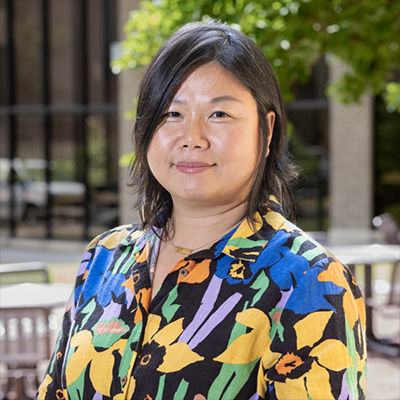
YJ Kim
YJ Kim is an Assistant Professor in the Department of Curriculum and Instruction. Her research and teaching revolve around realizing Professor Edmond Gordon’s vision of equitable learning and assessment. YJ employs playfulness as a lens to design assessment tools and incorporate democratic design practices into assessment development. YJ employs various methodologies such as evidence-centered design, design-based research, learning analytics, and quantitative ethnography to craft assessments that promote equity, while also meeting the conventional standards of rigor and surpassing them.